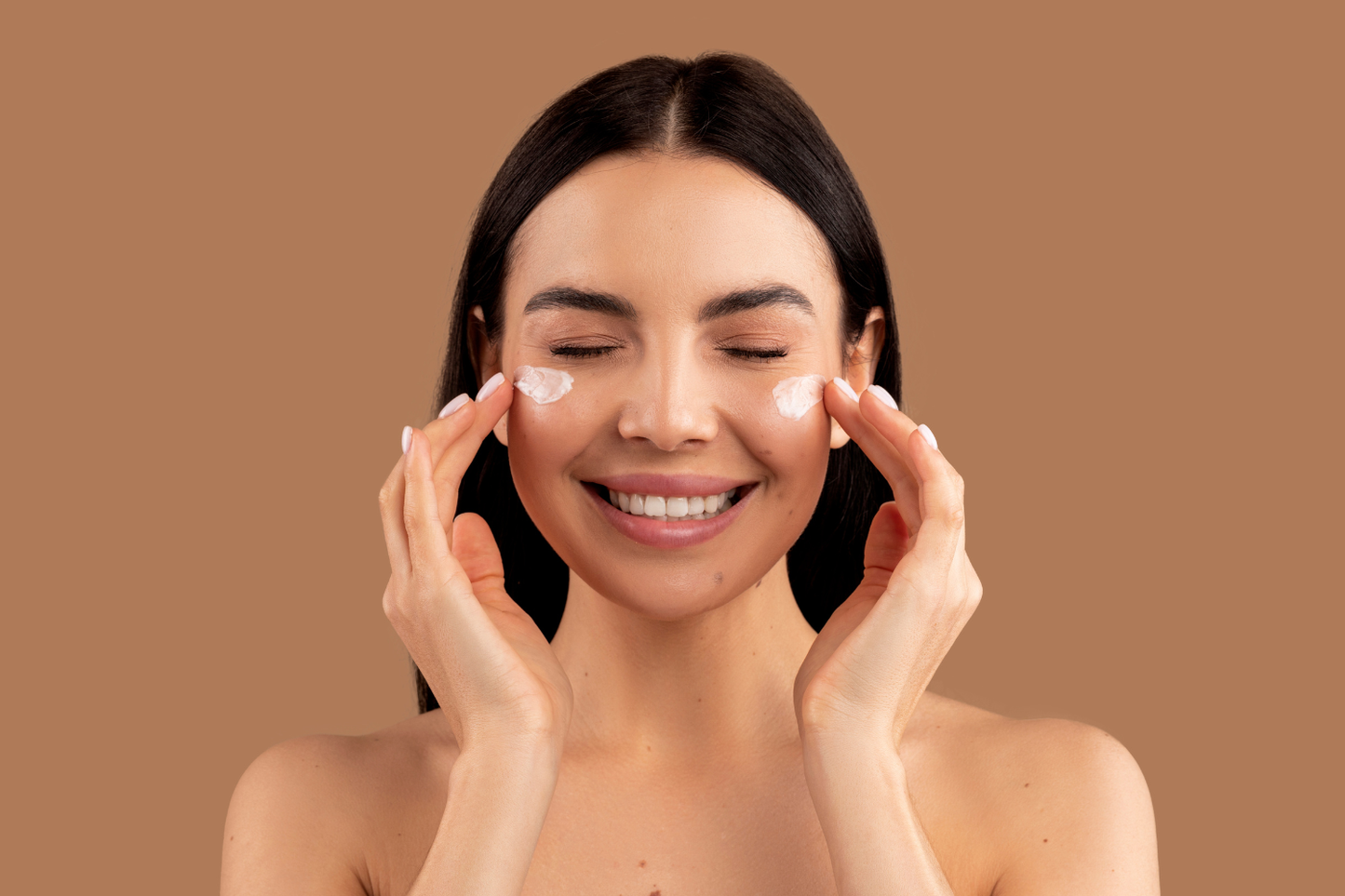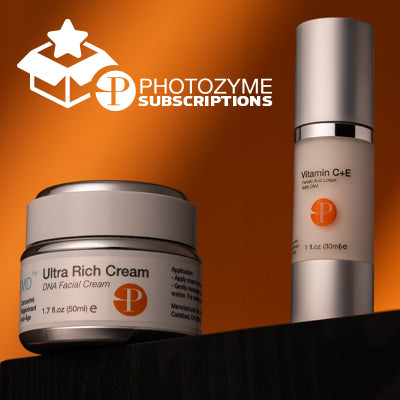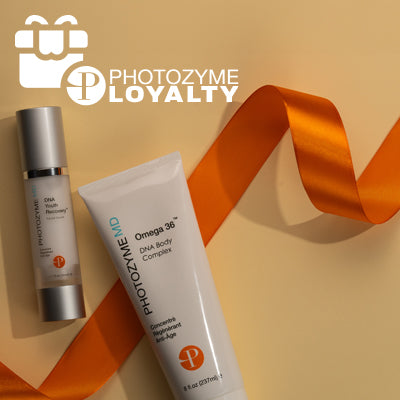
Key Takeaways:
- Tretinoin vs. Retinol: Understanding the differences between tretinoin and retinol is crucial for selecting the right anti-aging treatment tailored to individual skin needs and sensitivities.
- Tretinoin: Potent Yet Powerful: Tretinoin provides potent anti-aging benefits with faster results. Still, it requires careful usage due to its potential side effects, while retinol offers a gentler, more accessible alternative for gradual skin improvements.
-
Choosing The Right Option For Your Skin: The choice between tretinoin and retinol depends on desired outcomes, skin type, and access to professional guidance. Innovative skincare brands offer products to complement these powerful ingredients.
It’s a big decision.
Traversing the choices for preserving youthful and healthy skin can be daunting. Among the standout names frequently mentioned in anti-aging and skin rejuvenation are tretinoin and retinol. These potent Vitamin A derivatives are celebrated for their unparalleled ability to combat fine lines, wrinkles, and other skin concerns. However, despite their similar origins, tretinoin and retinol operate in distinct ways and offer different benefits. So, it’s crucial to understand their differences to choose the right product for your skincare needs.
At Photozyme LLC, we’re passionate about skincare and pursuing anti-aging solutions through the intricate selection of skincare treatments.
In this article, we will explore the crucial differences between tretinoin vs. retinol, their unique benefits for anti-aging, and how to choose the right option for your skin type and goals.
Chemical Structure And Skin Penetration: Tretinoin vs Retinol
When examining the distinctions between tretinoin and retinol, understanding their chemical structure and how they penetrate the skin is fundamental. Both compounds belong to the retinoid family, which is derived from vitamin A, yet they differ significantly in their molecular makeup and how they interact with the skin.
Tretinoin
Tretinoin, also known as all-trans-retinoic acid, is a more potent form of vitamin A. Its molecular structure allows it to bind directly to retinoic acid receptors in the skin. This direct action encourages rapid cell turnover, boosts collagen production, and significantly improves skin texture and pigmentation. However, due to its potency and direct mechanism of action, tretinoin is available by prescription only. It can cause more pronounced side effects, such as redness, peeling, and sensitivity, especially during the initial period of use. This makes it imperative for users to follow a dermatologist’s guidance when incorporating tretinoin into their skincare regimen.
Retinol
Conversely, Retinol is gentler, making it more suitable for over-the-counter formulations. Unlike tretinoin, retinol needs to undergo a conversion process once it's applied to the skin. Specifically, it converts into retinaldehyde and retinoic acid before it can start working effectively. While making retinol less irritating than tretinoin, this conversion process also means it takes longer to see results. However, retinol’s lower potency and gradual effects make it an excellent choice for those with sensitive skin or individuals looking to incorporate a less aggressive anti-aging product into their skincare routine.
The Choice
Both tretinoin and retinol are effective in penetrating deep layers of the skin to stimulate collagen production, speed up cell turnover, and diminish signs of aging. However, choosing between them depends on the user’s skin sensitivity, desired outcome, and preference for a prescription-strength product or an over-the-counter solution. For individuals seeking effective anti-aging products without the potential irritancy of prescription-strength tretinoin, Photozyme's innovative offerings, such as the DNA Youth Recovery Facial Serum, provide a powerful alternative with a blend of proprietary ingredients tailored to address various skin concerns.
The Benefits Of Tretinoin For Skin Health
Tretinoin is a potent ingredient beloved by dermatologists and skincare enthusiasts alike. Its numerous benefits for skin health make it a cornerstone in dermatological treatments and skincare regimens designed for rejuvenation and restoration.
Here’s why:
Stimulates Collagen Production
One of the paramount benefits of tretinoin is its ability to stimulate collagen production. Collagen is the protein that maintains the skin's structure, elasticity, and firmness. As we age, our body's natural collagen production declines, leading to fine lines, wrinkles, and a loss of firmness. Tretinoin combats these signs of aging by signaling the skin to ramp up its collagen synthesis, resulting in a more youthful appearance.
Accelerates Cell Turnover
Tretinoin accelerates cell turnover. This means that it helps the skin shed dead and damaged cells more quickly, promoting the growth of new, healthy skin cells. This action is valuable for reducing the appearance of aging and improving skin texture and tone. Tretinoin can significantly improve dullness, rough patches, and uneven skin tone.
Fades Hyperpigmentation And Sun Damage
Tretinoin effectively fades hyperpigmentation, including age spots and sunspots. Its ability to rejuvenate the skin makes it a powerful ally against the visible effects of sun damage, a leading cause of premature skin aging.
Reduces Acne And Acne Scarring
Its exfoliating action helps to clear pores, reducing the occurrence of acne. Moreover, by promoting cell regeneration, tretinoin can also minimize the appearance of acne scars, leaving the skin smoother and more uniform.
Enhances Skin Texture And Minimizes Pores
The consistent use of tretinoin can lead to an overall enhancement in skin texture. As it encourages the growth of new skin cells and increases collagen production, the skin becomes smoother and more refined. This includes a visible reduction in the size of pores, which is often a concern for those with oily or acne-prone skin.
What Retinol Can Do For Your Skin
Retinol is a powerful ingredient in the skincare industry, particularly when addressing signs of aging. It promotes skin renewal, enhances collagen production, and reduces the appearance of fine lines and wrinkles. Its effectiveness lies in its ability to accelerate the turnover of skin cells, paving the way for new, healthier skin.
Improving Skin Texture And Tone
Beyond its anti-aging benefits, retinol cream for your face can also improve skin texture and tone, making it smoother and more even. It effectively treats photo-damaged skin, reducing hyperpigmentation and dark spots caused by sun exposure.
Retinol For Acne-Prone Skin
Regular use of retinol has been shown to unclog pores, making it beneficial for people with acne-prone skin as it reduces the occurrence of breakouts and promotes clearer skin.
How To Use Retinol Effectively
Retinol's versatility makes it suitable for a wide range of skin concerns, but it is important to gradually introduce it into skincare routines. Starting with lower concentrations and gradually increasing allows the skin to build tolerance, minimizing potential irritation. Pairing retinol with a high SPF sunscreen is crucial, as retinol can make the skin more susceptible to UV rays.
Photozyme's Advanced Retinol Solutions
For those looking to incorporate retinol into their skincare regimen, Photozyme LLC offers products designed to harness the benefits of retinol alongside innovative and proprietary ingredients. Products like the Ultra Rich DNA Facial Cream provide a multifaceted approach to anti-aging, combining the power of retinol with other cutting-edge technologies to address wrinkles, hydration, and skin protection comprehensively.
How To Choose Between Tretinoin And Retinol
Deciding between tretinoin and retinol can be a turning point in your skincare regimen, especially if you want to address aging concerns like fine lines, wrinkles, and uneven skin texture.
To make an informed decision, consider the following factors:
1. Skin Sensitivity And Condition
Tretinoin is a potent prescription-strength retinoid known for its effectiveness in reducing signs of aging and acne. However, its strength may not suit individuals with sensitive skin, as it can cause irritation, dryness, and redness. If your skin is sensitive or you're new to retinoids, starting with retinol for sensitive skin can be a more gentle introduction.
2. Desired Results And Timeline
Consider what you're trying to achieve and how quickly you want to see results. Due to its higher concentration, tretinoin typically offers faster and more dramatic outcomes. It directly targets cell turnover and collagen production. On the other hand, retinol, being a milder option, requires consistent use over a longer period to produce visible changes. If immediate results are your priority, tretinoin may be the better choice, given that your skin can tolerate the potency.
3. Access And Convenience
Tretinoin requires a prescription from a healthcare provider, which adds an extra step to obtaining it. You must consult a dermatologist to determine if it suits your skin condition. Retinol, available over the counter, can be more easily incorporated into your skincare routine without needing a doctor's visit.
4. Compatibility With Skincare Products
Both tretinoin and retinol can increase your skin's sensitivity to UV radiation, making sunscreen an absolute necessity in your daily routine. Considering Photozyme's focus on innovative and proprietary skincare solutions, products like the GFS Plus Night Serum could complement your use of retinol by providing anti-aging benefits while focusing on DNA repair. When choosing between tretinoin and retinol, also learn about retinol vs. retinoid and evaluate your current skincare lineup to ensure compatibility and avoid products that may cause further irritation.
Comparison Of Application And Usage Guidelines
Both are pivotal in anti-aging skincare regimens, yet they differ significantly in their application and usage instructions due to their dissimilar strengths and formulations.
- Tretinoin Application Guidelines: Tretinoin, a prescription-strength retinoid, is renowned for its potent anti-aging and acne-fighting abilities. Dermatologists typically advise starting with a lower concentration and applying a pea-sized amount once daily in the evening.
- Managing Tretinoin Side Effects: Due to its potency, tretinoin may cause initial side effects like redness, peeling, or dryness. Moisturizing well and using sunscreen diligently daily is essential to minimize these effects.
- Retinol Application Guidelines: It’s essential to know how to use retinol. A pea-sized amount is applied in the evening, making it an excellent option for beginners or those with sensitive skin.
- Retinol Side Effects & Adaptation: Retinol's initial side effects, such as peeling and dryness, are typically less severe than tretinoin. Using a hydrating moisturizer and daily sunscreen ensures better skin tolerance.
- Adapting To Different Skin Types: Individuals should adjust retinoid usage based on their skin's response. Sensitive skin may benefit from buffering with a moisturizer, while resilient skin might pair retinoids with other actives like vitamin C and ferulic acid.
Final Thoughts
Navigating the differences between tretinoin and retinol can empower individuals to make informed choices tailored to their unique skin needs. Tretinoin, a prescription-strength retinoid, offers potent benefits in anti-aging treatment and acne control but requires guidance from healthcare professionals to mitigate its associated side effects. On the other hand, retinol is a gentler yet effective alternative that’s accessible over the counter and suitable for those introducing retinoids into their skincare regimen or with sensitivity concerns.
At Photozyme, we are committed to innovative and proprietary skincare solutions and offer various products to meet these diverse needs. Whether opting for the powerful effects of tretinoin or the gentler introduction to retinoids through retinol, the journey to healthier, youthful-looking skin is a personalized endeavor. Through careful selection and proper guidance, achieving your skincare goals becomes a reality.
Read Also:
- The Importance Of A Proper Winter Skin Care Routine
- Why Holiday Skincare Sets Make The Perfect Seasonal Surprise
- How To Hydrate Your Skin: Best Methods For A Healthy Glow
Frequently Asked Questions About Tretinoin vs Retinol
What is retinol?
Retinol is a form of Vitamin A that is commonly used in over-the-counter skincare products. It is well known for its anti-aging properties, including reducing the appearance of fine lines and wrinkles. As a milder retinoid, it encourages the skin to renew itself more quickly, promoting a smoother, more youthful complexion.
Is a prescription required for tretinoin or retinol?
Due to its potency and potential side effects, tretinoin requires a prescription. Conversely, Retinol can be found in various over-the-counter skincare products, making it accessible without a prescription.
What are the main uses of retinol?
Retinol is primarily used for its anti-aging benefits. It helps to diminish the appearance of fine lines and wrinkles, improve skin texture, and combat signs of photoaging. It can also treat mild acne and uneven skin tone, making it a versatile ingredient in skincare routines.
How does tretinoin benefit the skin?
Tretinoin accelerates cell turnover, which can significantly improve skin texture and color. It is highly effective in treating acne, reducing the appearance of fine lines and surface wrinkles, fading hyperpigmentation, and improving the skin’s overall appearance.
What are the main uses of tretinoin?
Tretinoin is mainly used to treat acne and severe hyperpigmentation. It is also a cornerstone in anti-aging therapy, effectively reducing the appearance of deep wrinkles and fine lines, smoothing rough skin texture, and restoring a youthful glow. Due to its strong effects, tretinoin is also utilized to address pre-cancerous skin patches known as actinic keratosis.
Can tretinoin and retinol be found in over-the-counter products?
Retinol is commonly found in over-the-counter products and is available in various formulations such as serums, creams, and lotions. However, due to its stronger effects and potential for irritation, Tretinoin is unavailable over the counter and requires a prescription from a healthcare professional.




